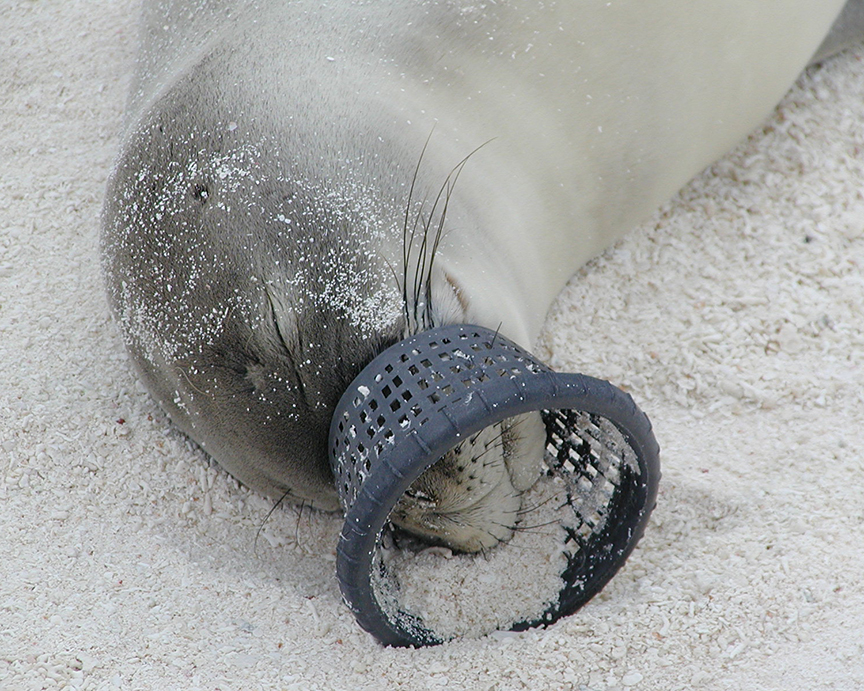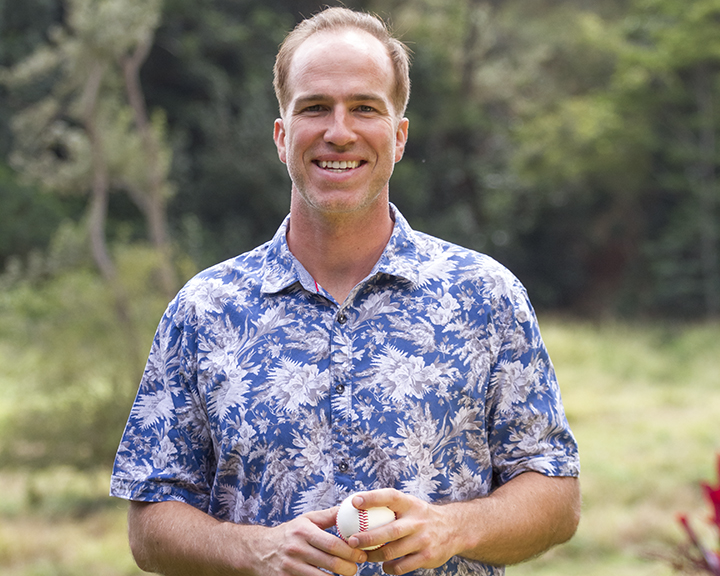
DLNR officers go through an illegal campsite in Kalalau. Video grab DLNR
Combined law enforcement and clean-up operations at Kalalau Beach in the Napali Coast State Wilderness Park on Kaua‘i over the past month, have resulted in dozens of citations, an arrest and the airlifting of tons of accumulated rubbish from the area, according to the state Department of Land and Natural Resources.
“We want people to know that we have a zero tolerance attitude toward any type of unlawful activities along the Napali Coast,” said Francis Mission, DLNR Division of Conservation and Resources Kaua‘i Branch Chief.
DOCARE officers arrested Francis Kinimaka, of Hanalei, on Jan. 4, after he landed a jet-ski on Kalalau Beach, a closed area, without a permit, according to a DLNR press release. Kinimaka was cited with four petty misdemeanors. The jet-ski he was operating was taken into evidence. Kinimaka’s passenger was also cited for not having a permit to be in the area.

A jet-ski taken as evidence by DLNR officers is seen here. The alleged jet-ski operator, Francis Kinimaka, is standing on the background. Video grab DLNR.
During four separate enforcement visits in January and February, DOCARE officers issued nearly 70 citations to hikers and backpackers who did not have state-issued camping permits. These permits allow a maximum of 60 people to camp in designated areas fronting Kalalau Beach for five days at a time.
“The Kalalau region is remote, and that’s precisely what makes it a world-class destination for backpackers. This remoteness gives it its wilderness character,” DLNR Chair Suzanne Case said.
Her administration, she said, is committed to restoring the entire Napali Coast to the kind of condition all of Hawai‘i can be proud of.

Kalalau Beach. Courtesy of DLNR
“The Napali Coast is perhaps the most photographed area in all of Hawai‘i. It is heavily used and this is the reason we have laws that balance visitation with protection of natural and cultural resources along the coast and within the Napali’s stunning valleys,” Case said.
Maintenance crews from the DLNR Division of State Parks fly into Kalalau at least once a month to maintain overtaxed composting toilets, to perform trail maintenance and to fly out tons and tons of trash.
“It is clear that most of the rubbish being flown out of Kalalau was not carried in on someone’s back,” said DLNR State Parks Administrator Curt Cottrell adding the rubbish contained plastic lawn chairs, gallon glass bottles of alcohol, huge pop-up tents, full-sized air mattresses and other non-backpacking materials found in unpermitted camps in prime designated camping spots along Kalalau Beach.
“All Hawai‘i state taxpayers are helping cover the costs of supporting these cleanups and it is not fair to them or to the many legal campers who get permits and practice a wilderness ‘pack-it-in, pack-it-out, ethos,’” Cottrell said.

Surfboards, body boards and other property found in illegal campsites are seen here being airlifted out of Kalalau by DLNR. Video grab DLNR
During last week’s clean-up operation, a dozen unpermitted camps and abandoned property were removed. These camps were posted with “notices to vacate” several weeks ago. Items taken from the camps will be stored for 30 days and unless rightful owners reclaim their items, they will be discarded.
The largest camp dismantled this week is believed to be Kinimaka’s base camp, according to DLNR. Campers report men coming through the designated campground early each day asking if anyone wants a ride out. One camper told DLNR that she accepted the offer and paid $125 for a jet-ski lift, because she was tired after the 11-mile one way hike into the valley. The first two miles of the Kalalau trail are open to anyone to hike; beyond that requires a state permit.
“We are serious about shutting down the illegal commercial activity which is despoiling the landscape, impacting sensitive cultural sites, and often creating a very unpleasant experience for legal campers,” DOCARE Chief Thomas Friel said. “We’re putting the illegal operators on notice right now, that if you continue, you will be caught, cited, and could face criminal penalties.”
https://vimeo.com/154378939
Discover more from ForKauaiOnline
Subscribe to get the latest posts sent to your email.





Leave a Reply